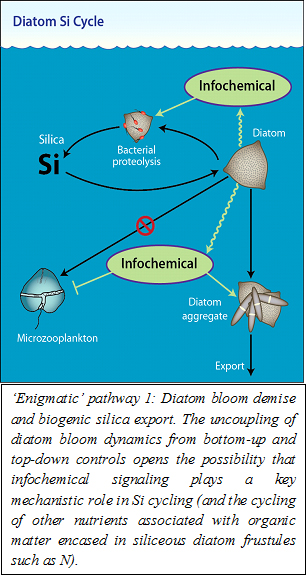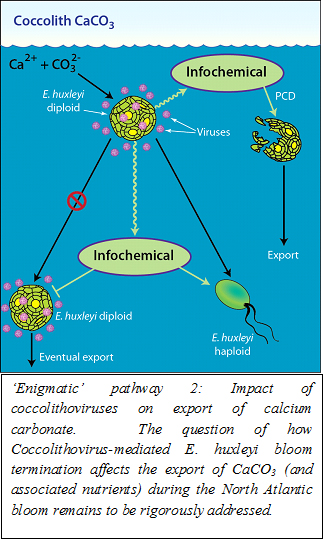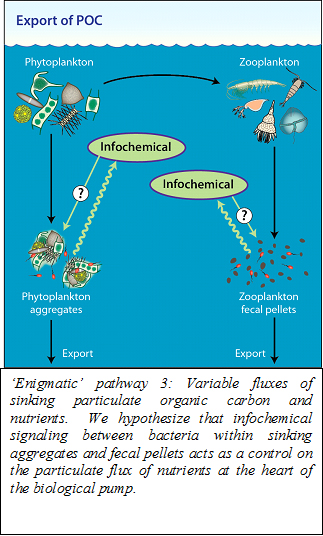Infochemical control of microbial interactions and nutrient cycling in the North Atlantic
This project supported MIT/WHOI Joint Program Student Bethanie Edwards.
Our overarching scientific objective is to understand the role of infochemical signaling on the flow of key nutrients during plankton blooms in the North Atlantic. Building upon our prior work, our project will target a diverse array of cornerstone infochemicals and assess how they critically regulate microbial interactions, ecosystem dynamics and nutrient fluxes. We have identified enigmatic biogeochemical pathways that consistently defy explanation using canonical bottom-up or top-down ecosystem controls, and instead, propose that they are under ‘infochemical control’. For each pathway we propose a number of testable hypotheses, which will be explored using a threefold approach: first, we will analytically ‘listen’ to infochemical conversations amongst key groups of microbial plankton involved in these pathways; second, we will molecularly ‘interrogate’ these groups in field- and lab-based experiments designed to perturb both environmental conditions and/or signaling pathways to reveal how infochemicals exert controls on cellular metabolism, growth, interactions and mortality at a molecular level; and third, we will biogeochemically ‘implicate’ infochemical signaling as critical controls on biogeochemical fluxes of carbon and nutrients in the sea. We will apply these approaches using novel chemical, genetic, and molecular tools under in situ conditions during NSF-funded cruises.
For data files generated by the PIs working on this project, please go here.


Funding Agencies
![]()
Partners/Collaborators
| Benjamin Van Mooy1*, Kay Bidle2, Mathew Johnson1, Tracy Mincer1, Assaf Vardi3.
1 Woods Hole Oceanographic Institution, Woods Hole, MA. |
